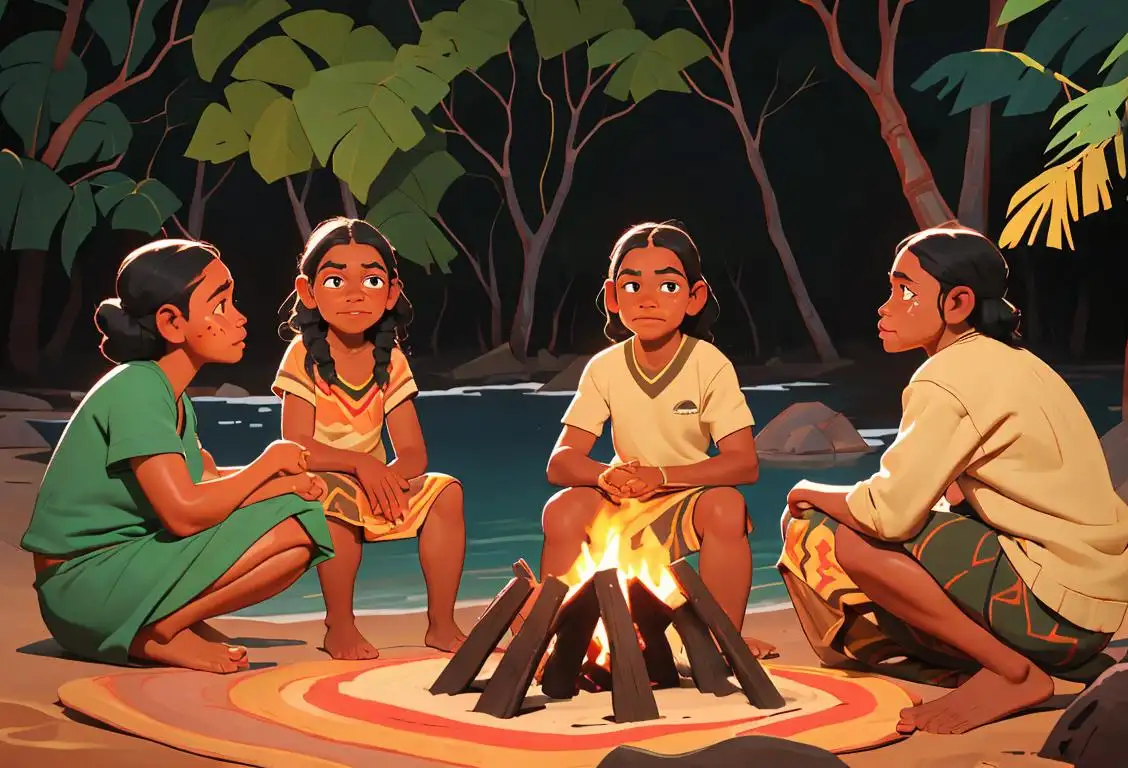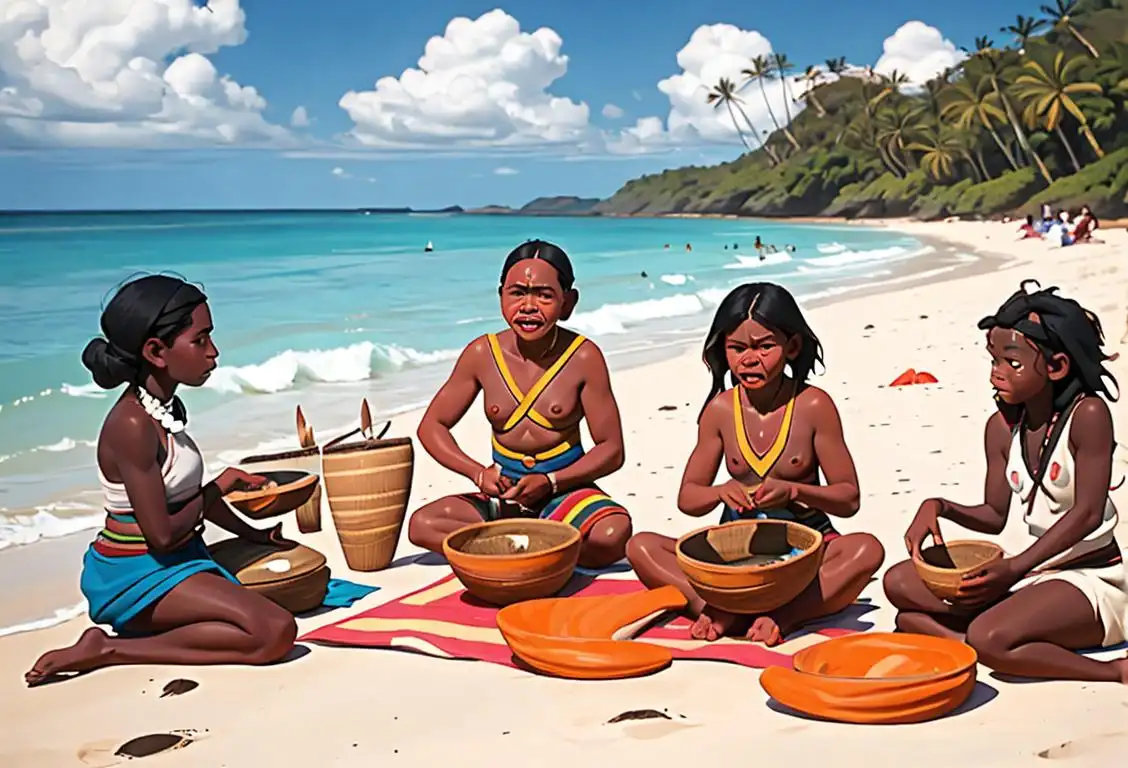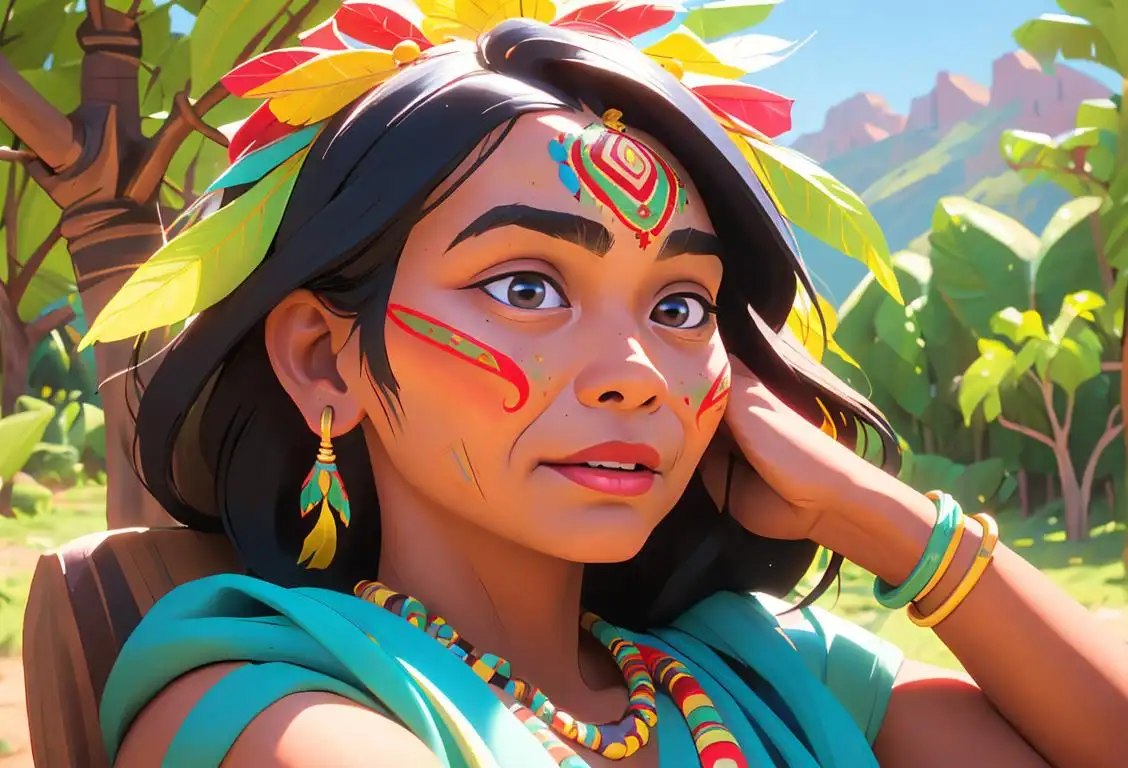National Aboriginal And Torres Strait Islander Day

Hey there! Welcome to WhatNationalDayIsIt.com, your friendly guide to all the wacky and wonderful national days out there. Today, we're diving into the fascinating world of National Aboriginal and Torres Strait Islander Day, a day to celebrate and honor the rich history and culture of Indigenous Australians. So grab a cuppa and let's get started!
When is Aboriginal And Torres Strait Islander Day?
It's national aboriginal and torres strait islander day on the 2nd August.
A Day for Celebration and Reflection
On National Aboriginal and Torres Strait Islander Day, we come together as a nation to celebrate the history, culture, and achievements of the Aboriginal and Torres Strait Islander peoples. It's a day to acknowledge the contributions they have made to our society and to reflect on the continued journey towards reconciliation.
A Journey into the History
The origins of this special day can be traced back to the efforts of Aboriginal and Torres Strait Islander communities who sought recognition and respect for their unique cultures and heritage.
Over time, this day has evolved into an opportunity for all Australians to embrace and learn about the diverse cultural practices, languages, and artistic expressions of the Indigenous population.
Commemorating with Cultural Events
National Aboriginal and Torres Strait Islander Day is marked by a variety of events and activities across the country. From art exhibitions to cultural dance performances, these celebrations provide a platform for Indigenous voices to be heard and appreciated.
It's also a time for non-Indigenous Australians to learn and engage with the traditions and customs of the First Nations peoples. By participating in these events, we foster a greater understanding and respect for the rich tapestry of Indigenous cultures.
Education and Awareness
One of the key objectives of this day is to promote education and awareness about the histories, cultures, and experiences of Aboriginal and Torres Strait Islander peoples. Many schools, universities, and community organizations organize workshops and seminars to deepen understanding and encourage dialogue.
By learning about the challenges faced by Indigenous communities, we can work towards a more inclusive and equitable society.
History behind the term 'Aboriginal And Torres Strait Islander'
1938
First Day of Mourning
On January 26, 1938, Aboriginal activists organized a protest known as the Day of Mourning in Sydney, Australia. This marked one of the first major demonstrations seeking equal rights and recognition for Aboriginal and Torres Strait Islander peoples. The event coincided with the 150th anniversary of the British settlement in Australia and aimed to challenge the widely held belief of a peaceful settlement and highlight the ongoing mistreatment of Indigenous Australians.
1962
Citizenship Rights
In 1962, the Australian government granted citizenship rights to Aboriginal people in an important step towards recognizing their equality. This marked a significant change in policy and acknowledged the inherent rights and privileges that should be extended to all citizens, irrespective of their ethnic background. It was a crucial moment in the ongoing struggle for recognition and equality for Aboriginal and Torres Strait Islander peoples.
1972
Tent Embassy
On January 26, 1972, Aboriginal activists erected the Aboriginal Tent Embassy on the lawns of Parliament House in Canberra, Australia's capital city. The embassy became a symbol of protest against the government's failure to address land rights and other crucial issues affecting Aboriginal and Torres Strait Islander communities. The embassy still stands today and is a powerful reminder of the ongoing fight for Indigenous rights.
1989
Keating's Redfern Speech
In December 1992, Australian Prime Minister Paul Keating delivered a historic speech in Redfern, Sydney. Keating acknowledged past injustices, expressed deep regret for the mistreatment of Aboriginal and Torres Strait Islander peoples, and called for reconciliation. This speech paved the way for a national conversation about Indigenous rights and representation, including the eventual establishment of the Council for Aboriginal Reconciliation in 1992.
1992
Mabo Decision
In 1992, the High Court of Australia handed down a landmark decision in the case of Eddie Mabo and others versus the State of Queensland. The court recognized the existence of native title, overturning the long-standing concept of terra nullius, which had claimed Australia as empty land when Europeans arrived. The Mabo decision was a significant legal and cultural milestone, acknowledging and protecting the rights of Aboriginal and Torres Strait Islander peoples to their ancestral lands.
1999
Reconciliation Walk
On May 28, 2000, hundreds of thousands of Australians participated in the Reconciliation Walk across Sydney Harbor Bridge. The event aimed to promote understanding, respect, and unity between Aboriginal and Torres Strait Islander peoples and the wider Australian community. The walk was a powerful display of support for reconciliation and highlighted the importance of acknowledging and healing the historical injustices inflicted upon Indigenous Australians.
2008
National Apology
On February 13, 2008, Prime Minister Kevin Rudd delivered the National Apology to the Stolen Generations in the Australian Parliament House. The apology acknowledged the pain, suffering, and separation endured by Aboriginal and Torres Strait Islander children who were forcibly removed from their families between the late 1800s and the 1970s. The National Apology represented a significant step towards healing and reconciliation in Australia.
2012
Recognizing Aboriginal and Torres Strait Islander Peoples
In 2012, the Australian government made an official constitutional recognition of Aboriginal and Torres Strait Islander peoples as the original inhabitants of Australia. This step aimed to address the historical exclusion of Indigenous Australians from the country's founding document and demonstrated a commitment to acknowledging their unique cultures, languages, and connections to the land.
Did you know?
Did you know that there are over 500 distinct Aboriginal and Torres Strait Islander nations in Australia, each with its own unique languages, traditions, and spiritual practices? That's an incredible amount of diversity packed into one country!Tagged
awareness celebration history cultureFirst identified
4th August 2015Most mentioned on
2nd August 2018Total mentions
55Other days
Aboriginal And Torres Strait Islander Day
Black People Day
Aborigines And Islanders Day
Indigenous Persons Day
Bourbon Day
Moving To Canada Day
Album Day
History Day
Chili Day
Vodka Day








